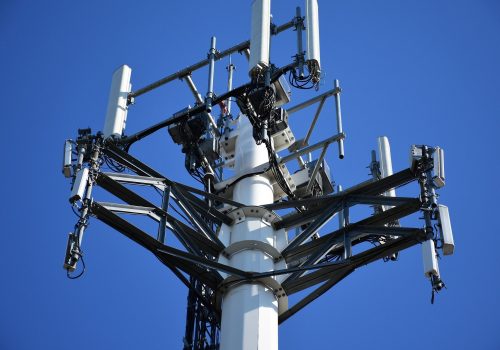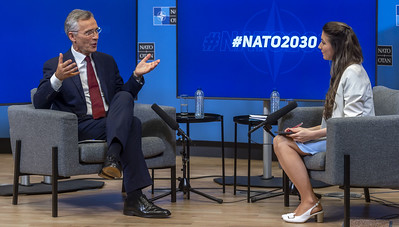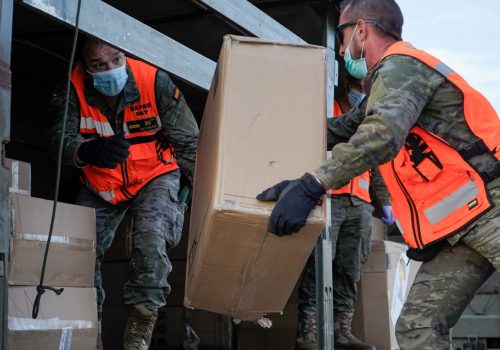Design a Digital Marshall Plan: NATO 20/2020 podcast
NATO allies, led by the United States, must cooperate in securing national 5G communications systems in Europe and beyond against malign Chinese influence.
About this episode
The hard power of the United States and its NATO allies is a deterrent of last resort against very real military threats facing Europe and beyond. But a growing concern is the creeping, quiet influence of China on democratic societies, especially with respect to critical 5G infrastructure under development across the world.
The transatlantic community is rightly concerned about the threat that Chinese investment in critical infrastructure poses to our nations. At NATO’s London Summit in December 2019, allied leaders for the first time recognized the challenges posed by China and the need for secure and resilient 5G communications systems.
As Representatives on the House Armed Services Committee, The Hon. Ruben Gallego and The Hon. Vicky Hartzler have warned for years that Chinese investment leads to undue influence in democracies around the world, whether through political and economic leverage and subversion or technological espionage and trade secret theft. In other words, China isn’t selling—it’s buying. In response, the transatlantic community, led by the United States, needs to create a Digital Marshall Plan to secure its communications in a modern, free ecosystem.
Watch the video
Key Takeaways
- 1:40: Rep. Gallego shares an elevator pitch on their recommendation for NATO to design a digital Marshall Plan
- 3:47: Rep. Gallego talks about what it would mean to NATO allies if the Alliance agreed to design a Digital Marshall Plan
- 7:19: Rep. Gallego explains how the Alliance could manage allies that don’t want to ban Huawei in their countries and why this is important
- 8:58: Rep. Gallego shares some of the reasons why other allies are not investing in their own systems like China invested in Huawei
- 11:27: Rep. Gallego describes the potential process and structure for teaming up those allies with vulnerable networks with allies with cutting edge expertise to determine the risks of Chinese 5G infrastructure
- 14:41: Rep. Gallego also explains how the idea would reinforce allies working together to discover their vulnerabilities in regards to Chinese technology without duplicating similar efforts that have been made in the EU
- 17:45: Rep. Gallego expands on his views about the threat of cutting off information-sharing with countries that continue to use Huawei technology
- 18:50: Rep. Gallego talks about how their recommendation would parallel efforts by the US to persuade allies to sign on to a pledge not to use this kind of Chinese technology
- 21:19: Rep. Gallego talks about the bipartisan nature of the issue
- 22:36: Rep. Gallego talks about the potential for advancing their idea in the next Congress and ways to present it to the European allies
Read the essay
Explore the podcast series
Related NATO 20/2020 essays
Related program

The Transatlantic Security Initiative, in the Scowcroft Center for Strategy and Security, shapes and influences the debate on the greatest security challenges facing the North Atlantic Alliance and its key partners.






